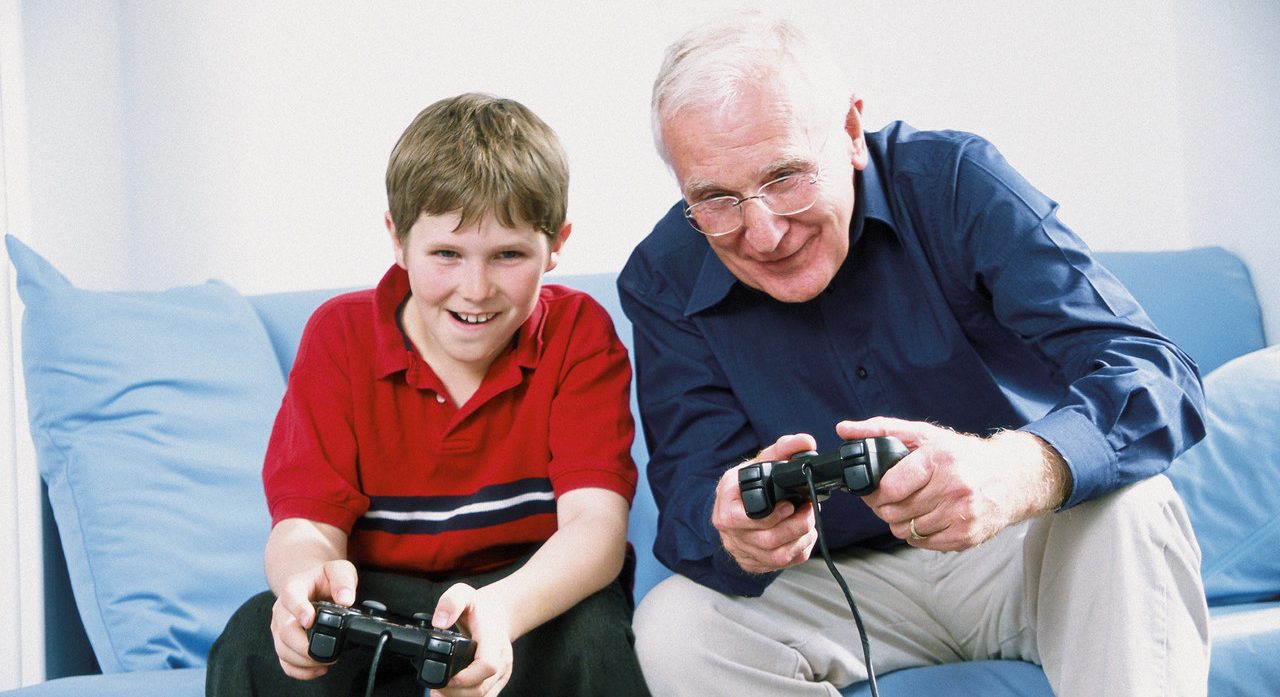Boosting Cognitive Skills in Childhood Cancer Survivors

Computer-based therapy can successfully treat memory and attention problems in young cancer survivors.
More than 80 percent of youngsters diagnosed with a malignancy are alive at least five years after their cancer was diagnosed, according to the National Cancer Institute. And thanks to advances in cancer treatment, many of these children are eventually declared cured. But that doesn’t mean they don’t have additional struggles to face.
YOU MIGHT ALSO LIKE: Gentler Treatments Help More Kids Survive Cancer
Cancer therapies, even when totally successful, can result in troublesome side effects, including problems with cognitive skills like memory and attention that can impact learning and behavior even after treatment has ended.
However, researchers at St. Jude Children's Research Hospital found that something a lot of kids already love to do — play video games — could improve and even potentially normalize working memory and other cognitive skills of childhood cancer survivors. In fact, the investigators concluded intensive, computer-based cognitive training presented as a video game could revolutionize treatment for late effects of cancer treatment that impact thinking.
The St. Jude study included 68 childhood cancer survivors who had been treated for acute lymphoblastic leukemia or brain tumors with cranial radiation and intrathecal chemotherapy (which delivers drugs directly into cerebral spinal fluid surrounding the spine and brain). Both of these treatments increase the risk young patients will develop thinking and memory problems that can cause problems in school, social situations, and work.
The youngsters, who were between the ages of 8 and 16, had finished their cancer therapies and been free of cancer for at least a year. But tests showed their working memory was below normal.
Half the youngsters in the study were assigned to computer game training immediately while the others started the intervention about six months later. The commercially available program used for the research, Cogmed, consists of 30- to 45-minutelong verbal and visual-spatial exercises that look like video games but are designed to improve working memory.
After children completed 20 to 30 computer-based training sessions, they were tested again — and the results were remarkable. Cognitive skills like working memory, attention, and processing speed (a measurement of how fast the brain processes information) had improved significantly for the childhood cancer survivors.
The training boosted memory and attention up to levels that compared to gains reported in earlier studies where stimulant medications were used. What’s more, for the 30 research participants who completed all the computer training sessions, their cognitive performance scores moved them back into the normal range.
To see if the computer training was causing actual changes in the brain, the researchers conducted brain imaging with MRIs on about 30 of the research participants before and after they completed the Cogmed program. The results showed that after finishing computer game-type training, there were positive changes in young cancer survivors’ brain activity.
"That suggests the intervention exercised and strengthened the well-established working memory network. The implication is that the brain may operate more efficiently and have less need for compensatory strategies," said St. Jude psychologist Heather Conklin, PhD, who headed the study. "Such training-induced neuroplasticity suggests the benefits might be sustained going forward."
Family members and other caregivers also reported the youngsters who completed the training had noticeably improved attention spans and were better able to plan, focus, and get things done.
"These results suggest that computerized cognitive training may help fill a void in management of cognitive late effects that impact quality of life for childhood cancer survivors, such as the likelihood they will complete school and live independently," Conklin said.
Despite the improvements in working memory, attention, and processing speed, the study didn’t document improvements in math or reading abilities. But the overall results are still good news for the growing number of U.S. childhood cancer survivors — currently numbered at about 420,000.
"While medication and therapist-led interventions have shown some benefit for select survivors, online training marks a significant advance by giving survivors convenient access to an effective intervention,” Conklin said. “Computerized cognitive training is a more feasible, portable, and efficient intervention than we've had in the past and is likely to result in meaningful improvement in the cognitive problems survivors experience.”
The St. Jude researchers are now looking to see if using the computer game-like training during cancer treatment or combining it with other interventions may benefit young cancer patients even more.
Updated:
March 31, 2020
Reviewed By:
Janet O’Dell, RN